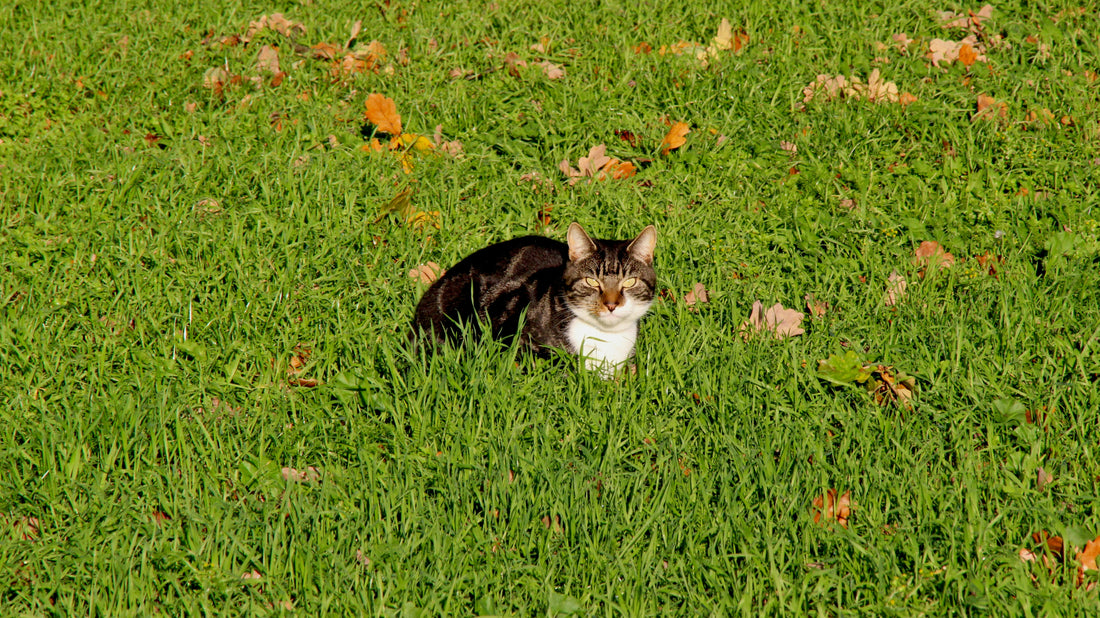
How to Maintain Your Pet's Healthy Skin and Coat: A Daily Care Guide
Share
Your pet’s skin and coat are not just about aesthetics; they are essential indicators of their overall health. A shiny coat and healthy skin reflect proper nutrition, grooming, and care. Neglecting skin and coat health can lead to issues like dry skin, dandruff, itching, and even infections. In this blog, we’ll discuss the best practices for maintaining your pet’s skin and coat health, and how HugWith products, such as HugWith’s Pet Grooming Glove Wipes, can simplify your pet's daily grooming routine.
1. Regular Brushing for a Shiny Coat
Brushing your pet’s coat regularly helps remove dead hair, dirt, and tangles, promoting a healthier, shinier coat. For dogs with long fur, daily brushing can prevent mats, while short-haired pets may only need brushing a few times a week. Brushing also stimulates the production of natural oils in the skin, which keeps the coat moisturized and shiny.
Use a brush that is appropriate for your pet’s coat type, and make grooming a bonding experience by offering treats and praise. Regular brushing also helps you spot any skin abnormalities, such as lumps, bumps, or sores, early on.
2. Bathe Your Pet, but Not Too Often
Bathing is essential for keeping your pet’s coat clean, but over-bathing can strip their skin of natural oils, leading to dryness and irritation. The frequency of baths depends on your pet’s breed, lifestyle, and coat type. Typically, once every 4 to 6 weeks is sufficient, but always consult with your vet for the best schedule for your pet.
Use a gentle, pet-friendly shampoo to avoid irritating your pet’s skin. In between baths, you can use HugWith’s Pet Grooming Glove Wipes to freshen up your pet and remove dirt without the need for a full bath. These wipes are perfect for keeping your pet clean after outdoor activities.
3. Keep Their Skin Hydrated
Dry skin can cause itching, flaking, and discomfort for your pet. To prevent this, ensure your pet’s skin stays hydrated by using moisturizing sprays or conditioners designed for pets. Omega-3 fatty acids, found in fish oil supplements, can also improve skin hydration and reduce inflammation.
If your pet’s skin is prone to dryness, consult your veterinarian about incorporating skin supplements or making dietary adjustments that include fatty acids.
4. Address Common Skin Issues
Pets can develop a range of skin issues, from allergies to fungal infections. It’s essential to recognize the signs of skin problems early to prevent them from worsening. Symptoms of skin issues may include:
- Excessive scratching or licking
- Red, inflamed patches
- Dandruff or flaking
- Hair loss in patches
If you notice any of these symptoms, consult your vet to determine the cause and the best course of treatment. Regular grooming can help prevent some of these issues by keeping the skin clean and free of irritants.
5. Nutrition and Coat Health
What your pet eats has a direct impact on their skin and coat health. A diet rich in vitamins, minerals, and essential fatty acids helps maintain a healthy coat. Omega-3 and omega-6 fatty acids, in particular, are known to improve coat shine and reduce skin inflammation.
If your pet has a dull coat or is shedding excessively, consult your vet to ensure their diet meets their nutritional needs. High-quality food with the right balance of nutrients can make a significant difference in your pet’s appearance and comfort.
6. Protect Against Parasites
Parasites like fleas, ticks, and mites can cause severe irritation and discomfort for your pet, leading to scratching, hair loss, and skin infections. Regularly checking your pet for parasites, especially after spending time outdoors, is essential for preventing infestations.
Using flea and tick preventatives as recommended by your vet is the best way to protect your pet from parasites. After outdoor play, you can also clean your pet’s coat with HugWith’s Pet Grooming Glove Wipes to remove dirt and potential allergens, keeping your pet’s coat healthy and parasite-free.
7. Regular Vet Checkups for Skin Health
Your veterinarian is a valuable resource for maintaining your pet’s skin and coat health. Regular checkups can help detect underlying conditions that may be affecting your pet’s skin, such as allergies or hormonal imbalances. Vets can recommend treatments or supplements to address specific skin and coat issues.
If you notice persistent skin problems, consult your vet for advice on the best treatment options and preventative care.
For more expert advice on maintaining your pet’s skin and coat, check out these trusted resources:
- ASPCA: Pet Skin and Coat Health
- American Veterinary Medical Association: Pet Skin Health
- PetMD: Skin and Coat Care for Pets
By following these tips and incorporating HugWith products, such as HugWith’s Pet Grooming Glove Wipes, into your pet’s grooming routine, you can help maintain their skin and coat health. Regular care, a proper diet, and keeping an eye out for skin issues will keep your pet looking and feeling their best.
